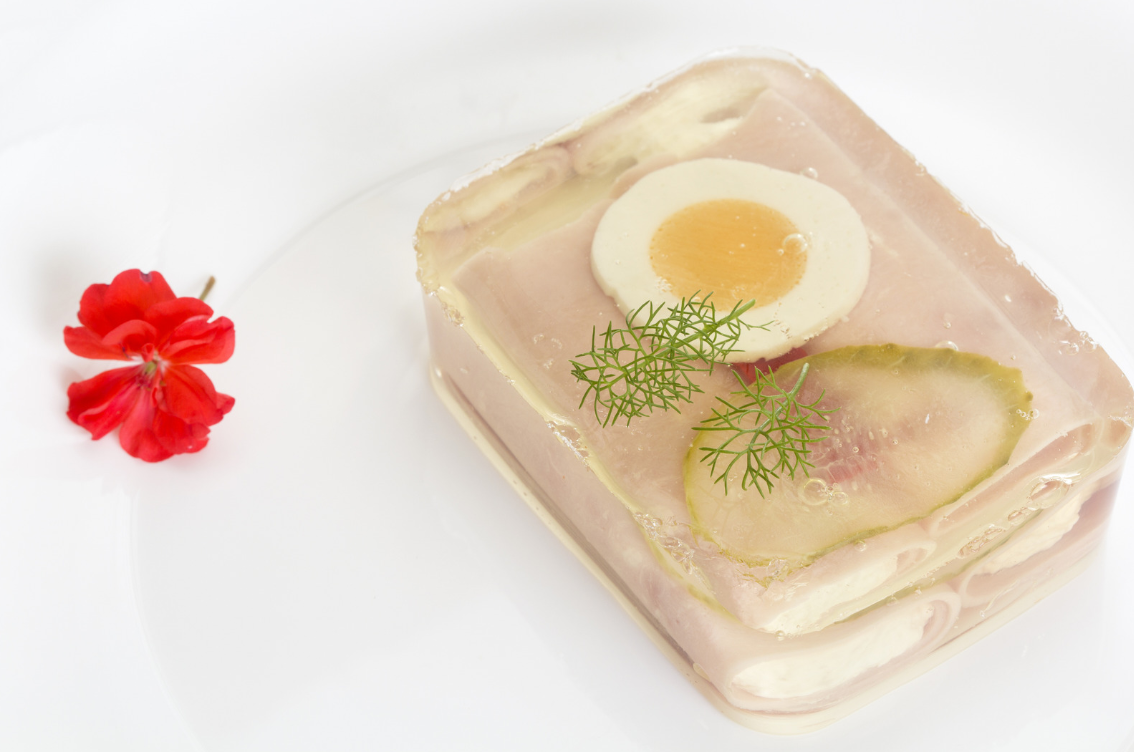Table of Contents
فوائد بروتين الكولاجين من النوع 3 لصحة الجلد
اسم المنتج:
| ببتيد الكولاجين | /كولاجين هيدروليزات/كولاجين متحلل/بروتين كولاجين جزيء صغيرنوع الاستخدام: |
| محسن التغذية | مدة الصلاحية: |
| 2 سنة | المحتوى: |
| تركيبة الكولاجين، الماء، الأحماض الأمينية | رقم سجل المستخلصات الكيميائية: |
| التطبيقات: | 9064-67-9 |
| تركيبة الكولاجين، الماء، الأحماض الأمينية | المظهر: |
| مسحوق أبيض نقي/حليب أبيض | المكونات |
| بروتين/ماء | الحد الأدنى لكمية الطلب: |
| 500 كيلوجرام | النكهة: |
| له طعم ورائحة المنتج المميزة، لا رائحة. | الحزمة: |
| حقيبة تعبئة 20 كجم/صندوق تعبئة 10 كجم | تعليمات الاستخدام: |
| يؤخذ عن طريق الفم، مذاباً في الماء | دور بروتين الكولاجين من النوع 3 في التئام الجروح |
يعد بروتين الكولاجين من النوع 3 عنصرًا حاسمًا في عملية التئام الجروح. هذا البروتين هو بروتين هيكلي رئيسي في المصفوفة خارج الخلية للأنسجة الضامة، مما يوفر القوة والدعم لمختلف الأنسجة في الجسم. في التئام الجروح، يلعب الكولاجين من النوع 3 دورًا مهمًا في تكوين أنسجة جديدة وإصلاح الجلد التالف.
عند حدوث جرح، يبدأ الجسم سلسلة معقدة من الأحداث لإصلاح الأنسجة التالفة. إحدى الخطوات الأولى في عملية التئام الجروح هي تكوين جلطة دموية لوقف النزيف ومنع العدوى. يشارك الكولاجين من النوع 3 في هذه المرحلة الأولية من التئام الجروح، لأنه يساعد على تثبيت جلطة الدم وتوفير إطار عمل لهجرة الخلايا إلى موقع الجرح.
مع تقدم عملية التئام الجروح، تنتج الخلايا الليفية يهاجر الكولاجين إلى موقع الجرح ويبدأ في تصنيع الكولاجين من النوع 3. يتم ترسيب هذا الكولاجين في البداية في الجرح لتوفير الدعم والبنية المؤقتة. بمرور الوقت، يتم استبدال الكولاجين من النوع 3 تدريجيًا بالكولاجين من النوع 1، وهو أقوى وأكثر متانة. يعد هذا الانتقال من النوع 3 إلى النوع 1 من الكولاجين ضروريًا للشفاء وإعادة تشكيل الجرح بشكل سليم.
يلعب الكولاجين من النوع 3 أيضًا دورًا في تكوين أوعية دموية جديدة، وهي عملية تُعرف باسم تكوين الأوعية الدموية. تعتبر الأوعية الدموية ضرورية لتوصيل الأكسجين والمواد المغذية إلى موقع الجرح، بالإضافة إلى إزالة النفايات وتعزيز هجرة الخلايا المناعية إلى المنطقة. يساعد الكولاجين من النوع 3 على دعم نمو الأوعية الدموية الجديدة وضمان تدفق الدم المناسب إلى موقع الجرح.
بروتين الكولاجين من النوع 3 وتأثيره على صحة المفاصل
يعد بروتين الكولاجين من النوع 3 عنصرًا أساسيًا في الأنسجة الضامة في الجسم، حيث يوفر القوة والدعم لمختلف الهياكل، بما في ذلك المفاصل. يعد فهم دور الكولاجين من النوع 3 في صحة المفاصل أمرًا ضروريًا للحفاظ على الحركة ومنع حالات مثل التهاب المفاصل وآلام المفاصل.
الكولاجين هو البروتين الأكثر وفرة في جسم الإنسان، حيث يمثل حوالي 30٪ من إجمالي محتوى البروتين. وهو لبنة أساسية في الأنسجة الضامة، والتي تشمل الأوتار والأربطة والغضاريف والمصفوفة خارج الخلية التي تحيط بالخلايا. الكولاجين من النوع 3 هو نوع محدد من الكولاجين يلعب دورًا مهمًا في الحفاظ على سلامة المفاصل ووظيفتها.
تتمثل إحدى الوظائف الأساسية للكولاجين من النوع 3 في توفير الدعم الهيكلي للمفاصل، مما يساعد في الحفاظ على شكلها واستقرارها. تشكل ألياف الكولاجين شبكة تعمل بمثابة سقالة لمكونات المفصل الأخرى، مثل الغضروف والسائل الزليلي. تساعد هذه الشبكة على توزيع القوى الميكانيكية بالتساوي عبر المفصل، مما يقلل من تآكل الأنسجة.
بالإضافة إلى دوره الهيكلي، يلعب الكولاجين من النوع 3 أيضًا دورًا في إصلاح وتجديد أنسجة المفاصل. عندما تتعرض المفاصل للإجهاد أو الإصابة، يتم إنتاج الكولاجين من النوع 3 للمساعدة في إصلاح الأنسجة التالفة وتعزيز الشفاء. هذه العملية ضرورية للحفاظ على صحة المفاصل ووظيفتها، لأنها تساعد على منع تطور الحالات المزمنة مثل هشاشة العظام.
يشارك الكولاجين من النوع 3 أيضًا في الحفاظ على مرونة المفاصل ونطاق الحركة. توفر ألياف الكولاجين مرونة للمفاصل، مما يسمح لها بالتحرك بسلاسة ودون ألم. بدون كمية كافية من الكولاجين من النوع 3، قد تصبح المفاصل قاسية وأقل قدرة على الحركة، مما يؤدي إلى عدم الراحة وانخفاض جودة الحياة.
مع تقدمنا في العمر، يتناقص إنتاج الكولاجين من النوع 3 بشكل طبيعي، مما يؤدي إلى انخفاض صحة المفاصل. يمكن أن يؤدي هذا الانخفاض إلى حالات مثل التهاب المفاصل، الذي يتميز بالتهاب وتآكل أنسجة المفاصل. من خلال فهم دور الكولاجين من النوع 3 في صحة المفاصل، يمكننا اتخاذ خطوات لدعم إنتاجه والحفاظ على سلامة مفاصلنا.
هناك عدة طرق لدعم إنتاج الكولاجين من النوع 3 وتعزيز صحة المفاصل. يمكن أن يساعد تناول نظام غذائي غني بالمواد المغذية لبناء الكولاجين، مثل فيتامين C والزنك والنحاس، في دعم تخليق الكولاجين من النوع 3 في الجسم. بالإضافة إلى ذلك، يمكن أن تساعد التمارين المنتظمة في الحفاظ على مرونة المفاصل وقوتها، مما يقلل من خطر الإصابة والانحطاط.
في الختام، يلعب بروتين الكولاجين من النوع 3 دورًا حاسمًا في الحفاظ على صحة المفاصل ووظيفتها. من خلال فهم أهمية الكولاجين من النوع 3 في صحة المفاصل، يمكننا اتخاذ خطوات لدعم إنتاجه ومنع حالات مثل التهاب المفاصل. من خلال التغذية السليمة وممارسة الرياضة واختيارات نمط الحياة، يمكننا تعزيز سلامة مفاصلنا والاستمتاع بحياة من الحركة والراحة.
Collagen Type 3 Protein is a crucial component in the wound healing process. This protein is a major structural protein in the extracellular matrix of connective tissues, providing strength and support to various tissues in the body. In wound healing, collagen Type 3 plays a significant role in the formation of new tissue and the repair of damaged skin.
When a wound occurs, the body initiates a complex series of events to repair the damaged tissue. One of the first steps in the wound healing process is the formation of a blood clot to stop bleeding and prevent infection. Collagen Type 3 is involved in this initial phase of wound healing, as it helps to stabilize the blood clot and provide a framework for the migration of cells to the wound site.
As the wound healing process progresses, fibroblasts – cells that produce collagen – migrate to the wound site and begin to synthesize collagen Type 3. This collagen is initially deposited in the wound to provide temporary support and structure. Over time, collagen Type 3 is gradually replaced by collagen Type 1, which is stronger and more durable. This transition from Type 3 to Type 1 collagen is essential for the proper healing and remodeling of the wound.
Collagen Type 3 also plays a role in the formation of new blood vessels, a process known as angiogenesis. Blood vessels are essential for delivering oxygen and nutrients to the wound site, as well as removing waste products and promoting the migration of immune cells to the area. Collagen Type 3 helps to support the growth of new blood vessels and ensure proper blood flow to the wound site.

In addition to its structural role, collagen Type 3 also plays a role in regulating inflammation during the wound healing process. Inflammation is a natural response to tissue injury and is necessary for the recruitment of immune cells to the wound site. However, excessive inflammation can delay the healing process and Lead to complications. Collagen Type 3 helps to modulate the inflammatory response and promote a balanced healing Environment.
Overall, collagen Type 3 is a critical protein in the wound healing process, providing structural support, promoting angiogenesis, and regulating inflammation. Deficiencies in collagen Type 3 can impair the healing process and lead to delayed wound closure and increased scarring. Therefore, understanding the role of collagen Type 3 in wound healing is essential for developing effective strategies to promote optimal healing outcomes.
In conclusion, collagen Type 3 protein plays a vital role in the wound healing process by providing structural support, promoting angiogenesis, and regulating inflammation. Its presence is essential for the proper repair and remodeling of damaged tissue. By understanding the role of collagen Type 3 in wound healing, researchers and healthcare professionals can develop targeted therapies to enhance the healing process and improve patient outcomes.
Collagen Type 3 Protein and its Impact on Joint Health
Collagen Type 3 Protein and its Impact on Joint Health
Collagen Type 3 protein is a crucial component of the body’s connective tissues, providing strength and support to various structures, including joints. Understanding the role of collagen Type 3 in joint health is essential for maintaining mobility and preventing conditions such as arthritis and joint pain.
Collagen is the most abundant protein in the human body, accounting for about 30% of total protein content. It is a key building block of connective tissues, which include tendons, ligaments, cartilage, and the extracellular matrix that surrounds cells. Collagen Type 3 is a specific type of collagen that plays a significant role in maintaining the integrity and function of joints.
One of the primary functions of collagen Type 3 is to provide structural support to joints, helping to maintain their shape and stability. Collagen fibers form a network that acts as a scaffold for other components of the joint, such as cartilage and synovial fluid. This network helps to distribute mechanical forces evenly across the joint, reducing wear and tear on the tissues.
In addition to its structural role, collagen Type 3 also plays a role in the repair and regeneration of joint tissues. When joints are subjected to stress or injury, collagen Type 3 is produced to help repair damaged tissues and promote healing. This process is essential for maintaining the health and function of joints, as it helps to prevent the development of chronic conditions such as osteoarthritis.
Collagen Type 3 is also involved in the maintenance of joint flexibility and range of motion. Collagen fibers provide elasticity to joints, allowing them to move smoothly and without pain. Without adequate collagen Type 3, joints may become stiff and less mobile, leading to discomfort and reduced quality of life.
As we age, the production of collagen Type 3 naturally decreases, leading to a decline in joint health. This decline can result in conditions such as arthritis, which is characterized by inflammation and degeneration of joint tissues. By understanding the role of collagen Type 3 in joint health, we can take steps to support its production and maintain the integrity of our joints.
There are several ways to support collagen Type 3 production and promote joint health. Consuming a diet rich in collagen-building nutrients, such as vitamin C, Zinc, and Copper, can help to support the synthesis of collagen Type 3 in the body. Additionally, regular exercise can help to maintain joint flexibility and strength, reducing the risk of injury and degeneration.
In conclusion, collagen Type 3 protein plays a crucial role in maintaining the health and function of joints. By understanding the importance of collagen Type 3 in joint health, we can take steps to support its production and prevent conditions such as arthritis. Through proper nutrition, exercise, and lifestyle choices, we can promote the integrity of our joints and enjoy a lifetime of mobility and comfort.
